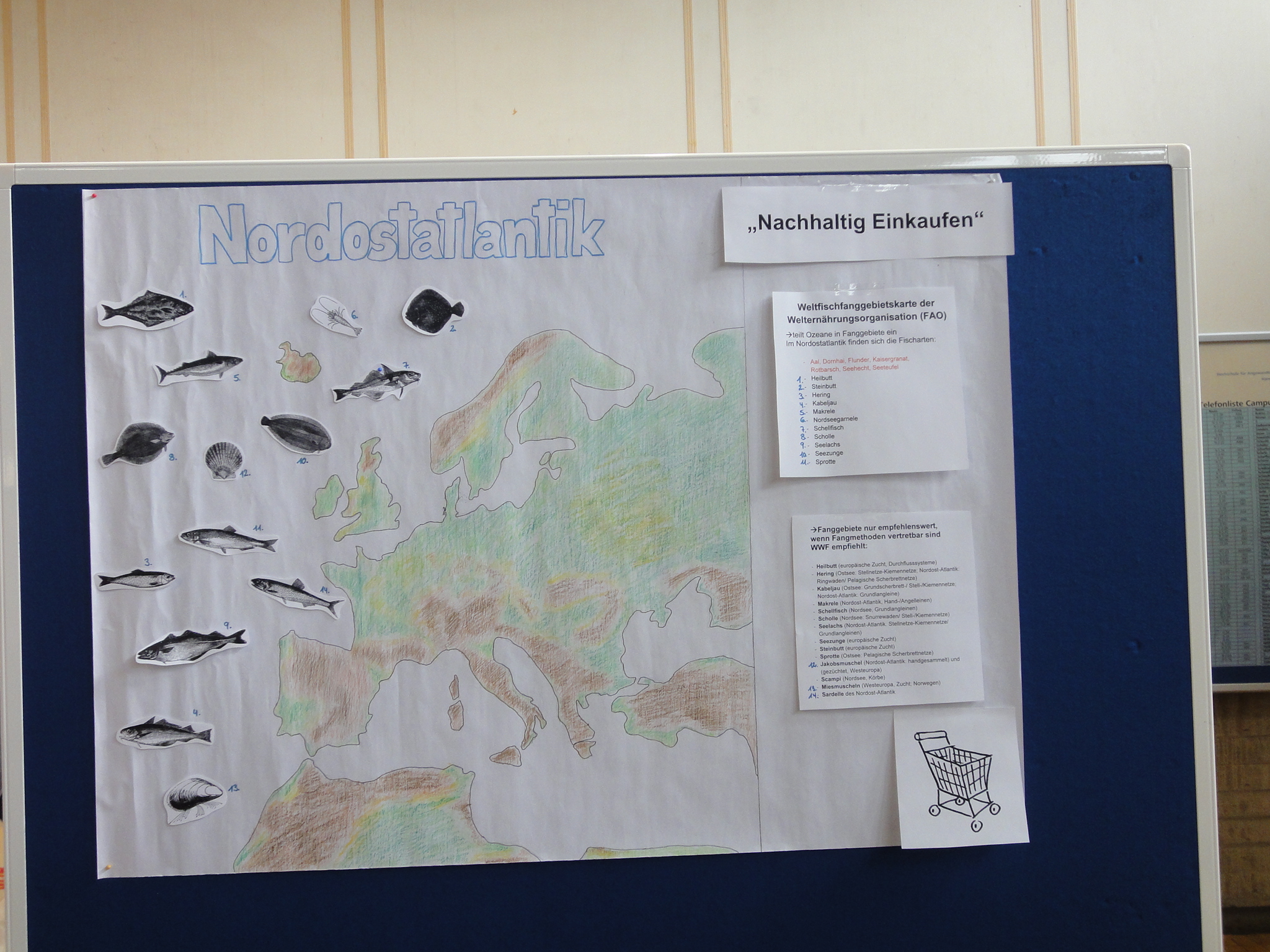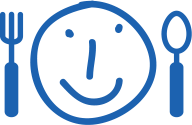Chapter 2 – Background information on: Fair trade food and fish form sustainable production (MSC fish)
This Chapter covers other aspects of sustainable food: Fair trade products like rice, nuts or bananas and fish that is produced in a sustainable way are two product groups kindergarten kitchen staff can integrate in the menu- cycle to convert to a more sustainable kitchen.
Fair trade
By buying products that carry the Fairtrade Mark, consumers can be assured that farmers and farm workers in poorer countries are getting a better deal: receiving a fair and stable price for their products that covers their costs of production; benefiting from longer-term trading relationships; and receiving the Fairtrade premium to invest in local schools and health clinics, for example.
The most important objectives are:
- market access for marginalized producers
- sustainable and equitable trading relationships
- capacity building and empowerment
- consumer awareness raising and advocacy
The Fairtrade system also includes some environmental standards as part of producer certification. The standard requires producers to protect the natural environment as part of farm management. Producers are also encouraged to minimize the use of energy, especially energy from non-renewable sources.
In distinction to the EU wide organic standard an EU wide fair trade standard is not established jet. The fair-trade associations have launched private standards that are well recognized and controlled by private certification bodies.
More information you get on in this Video (German language):
More information about some of the German private fair-trade labels you find here:
GEPA: http://www.gepa.de/home.html
Fair Trade Deutschland: https://www.fairtrade-deutschland.de/
Naturland fair: https://www.naturland.de/de/naturland/was-wir-tun/naturland-fair.html
Links with more information:
in German language
https://www.fairtrade.net/
https://www.fairtrade-deutschland.de/
Sustainable Fish
Humans have been fishing the oceans for thousands of years, but over the past five decades technology has allowed us to fish farther, deeper and more efficiently than ever before. Scientists estimate that we have removed as much as 90 percent of the large predatory fish such as shark, swordfish and cod from the world's oceans. In 2003, the Pew Oceans Commission warned that the world's oceans are in a state of "silent collapse," threatening our food supply, marine economies, recreation and the natural legacy we leave our children”.

There are two labels for sustainable fish.
The Marine Stewardship Council (MSC) label guarantees sustainable fishing methods for wild fish. While the label of the Aquaculture Stewardship Council (ASC) is a guarantee for fish out of aquaculture systems. This means this label is for fish or marine products that are produced in fish or shrimp farms.
MSC principles
Principle 1: A fishery must be conducted in a manner that does not lead to over-fishing or depletion of the exploited populations and, for those populations that are depleted, the fishery must be conducted in a manner that demonstrably leads to their recovery.
Principle 2: Fishing operations should allow for the maintenance of the structure, productivity, function and diversity of the ecosystem (including habitat and associated dependent and ecologically related species) on which the fishery depends.
Principle 3: The fishery is subject to an effective management system that respects local, national and international laws and standards and incorporates institutional and operational frameworks that require use of the resource to be responsible and sustainable.
The ASC standards
- Comprehensive legal compliance
- Conservation of natural habitat and biodiversity
- Conservation of water resources
- Conservation of species diversity and wild populations through prevention of escapes
- Use of feed and other inputs that are sourced responsibly
- Good animal health (no unnecessary use of antibiotics and chemicals)
- Social responsibility for workers and communities impacted by farming, (e.g. no child labor, health and safety of workers, freedom of association, community relations)
Link:
https://www.asc-aqua.org/
http://www.wwf.de/themen-projekte/meere-kuesten/fischerei/fischereipolitik-in-europa/



